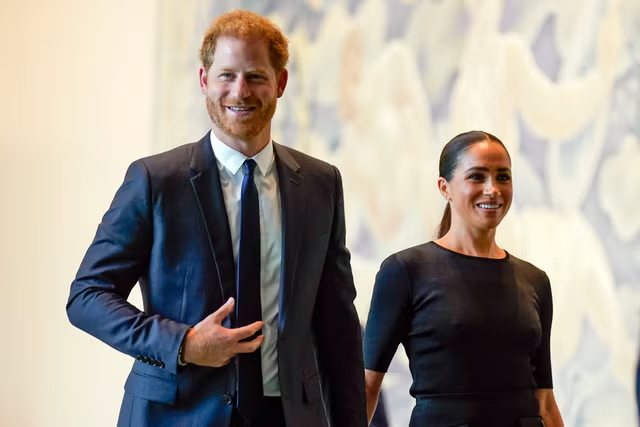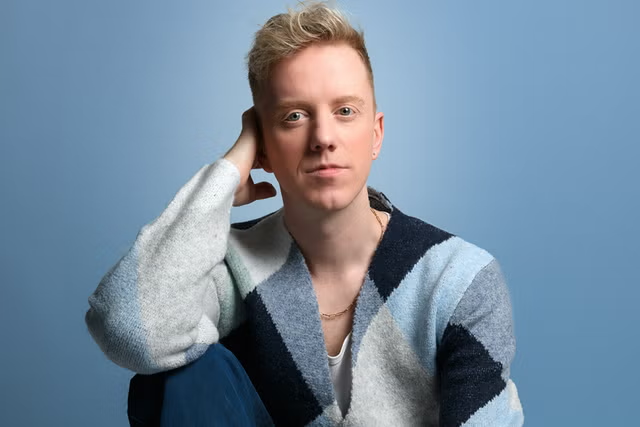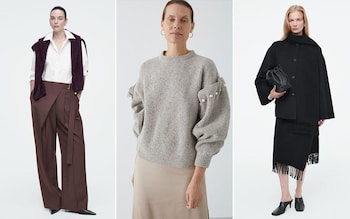
It’s Paris Fashion Week. The Louvre is a catwalk, no one can get a taxi, and there is a queue outside the Goyard luggage shop at 8.55am, waiting for it to open. But, with their minds on higher things, a select crowd is assembling at a bookshop in the 7th arrondissement for Chanel’s latest literary salon, hosted by Charlotte Casiraghi.
Although she is eighth in line to the throne of Monaco, with the haunting beauty of her grandmother Grace Kelly, Casiraghi is really a bluestocking by inclination. Family friend Karl Lagerfeld spotted this early. When she was 12 years old, he asked her to help him arrange his library in Biarritz. Now 38, Casiraghi is still devoted to literature and philosophy. As a literary ambassador for Chanel, she uses her deep knowledge of female authors to promote her favourites from Ingeborg Bachmann to Virginia Woolf, and to do live interviews and podcasts with authors such as Leïla Slimani and Siri Hustvedt.

She feels at home with the idea of being a patron. “There’s a big tradition of Monaco welcoming artists who were experiencing difficulties creating elsewhere,” she says. “From Serge Diaghilev [the Ballets Russes impresario], whom my great-great-grandfather invited to Monaco, to my grandmother who welcomed Josephine Baker when she was bankrupt – there are many stories like this.”
At tonight’s rendez-vous littéraire – the 13th that Casiraghi has hosted for Chanel – she puts the spotlight on Rachel Cusk, a British writer now based in Paris. Cusk’s most famous work is a frank account of motherhood and its discontents, A Life’s Work. “It’s so authentic and daring,” notes Casiraghi.
Glancing around the salon, not many of the chic attendees look too troubled by issues of baby-led weaning or the divided self, but all have been sent copies of Cusk’s books, bound in Chanel tissue-paper book jackets. The point is that this is great writing about a universal experience, not “women’s writing”. I spot Charlotte Casiraghi’s younger half-sister, Princess Alexandra of Hanover, who is 25. After Charlotte’s father Stefano Casiraghi died in a powerboat accident in 1990, her mother, Princess Caroline of Monaco, Princess Grace’s oldest child, married as her third husband Prince Ernst of Hanover.
Petite, doll-like, and strikingly similar to a young Queen Victoria, Princess Alexandra is a keen figure skater, although today she is loyally clutching a copy of A Life’s Work. I follow behind her as we are ushered through the bookshop to Karl Lagerfeld’s own private library. Deep as a swimming pool, with high galleries and a skylight, the space was once a photo studio and now contains 33,000 volumes. It was acquired by Chanel in 2021. Controversially, most books are laid horizontally on the shelves (Lagerfeld liked book spines to be legible without having to tilt his head). Each book feels loved and chosen: poetry, Polignac, Proust, Ptolemy…
“I remember when Karl got this library,” says Casiraghi. “He was someone who loved to give books as a present. So as a follow-up after a conversation, he would send you a package – the entire correspondence of Virginia Woolf, the diaries of Katherine Mansfield, the complete Emily Dickinson… these were so important to me as a teenager. He would order them from Galignani and have them delivered with a lovely handwritten letter, in ink.” She also recalled his edge: “He was so sharp, so unpredictable, you always had to make sure you believed what you were saying.”

As the event begins, a film camera, high on a library ladder, zooms in on Casiraghi. One senses she is an introvert who rises to the challenge of public speaking because she loves to talk about books. Cusk beams in the spotlight while special guest, the model Naomi Campbell, whom Casiraghi calls a “dear friend”, perches on a chair to read Cusk’s work aloud. Campbell speaks from the heart about how she longed to become a mother and how a surrogate helped her have her two children. The discourse is frank, the mood one of confidences exchanged, of shared incredulity at the loneliness of the maternal experience, and the lack of writing about it. “It’s a resounding void, if a void can resound,” says Cusk.

It is not long before the words “insufferable male superiority” crop up. The mention of a white wedding dress elicits a gently ribald laugh from the audience. Perhaps not everyone is riveted by the literary debate – I notice that a fashionista I am sitting behind spends quite a lot of time zooming his phone’s camera in very close on Campbell’s hand. Under the high, bright lights, Casiraghi is a gracious, poised host. She seems, quite rightly, exhilarated by the sense that this has been a valuable debate.

I meet her the next morning on the rue Cambon. We sit together in a grand spotless monochrome fitting room at one of the houses that Chanel has acquired adjacent to the original atelier and, as Casiraghi gratefully gulps a strong coffee, I see a different, more complex side to her, fiercely questioning, as she tucks her long, unruly hair behind her ears. Her elegant boots are deliberately unzipped and slouchy; her nails immaculately red.
She tells me that she organises seminars at Monaco’s hospital on topics such as “the pregnant body”. “It’s a vulnerable time and there’s a lot of questioning going on so it’s important not just to offer support, but to consider this experience as constantly questioning our human condition,” says Casiraghi. I suggest that working on these events must give her a sense of meaning. “Well, meaning is never stable,” she demurs, like a good post-structuralist. “It’s more like a perpetual quest for me, something I’ve been driven by since I was young: the passion to understand human complexity, and that goes together with literature, philosophy, psychology.”

In February it was announced that she and her husband the film producer Dimitri Rassam, son of actress Carole Bouquet, were divorcing; together they have a little boy Balthazar, five. She also has a son Raphaël, 10, by her ex, Gad Elmaleh, a Moroccan-Canadian comedian. “Reading a lot of female writers has helped me,” says Casiraghi, “not to live by expectations and judgments. For me, it’s important to be free from certain conventions.”
She lives in Monaco, where she hosts her maternal health salons. “It’s a small country so it’s politically easy to set something up. I work with [the departments for] education, culture, health – in a larger country it would take such a long time to do, whereas in Monaco we can experiment. It is an opportunity.” As part of the ruling family, she is well placed to do so. “But I always try to detach myself from this “royal” status,” she adds. “Of course I love to contribute to Monaco, but my philosophy taught me that being on the outside allows more complexity and diversity. For example, sometimes I invite people to speak who I don’t agree with, trying to confront ideas.”
For example? “Freedom of expression, gender, feminism are all topics that we’ve tried to explore in audacious ways.” She doesn’t like being ‘official’? “No,” comes the swift reply.

“I don’t particularly like this “official representing”, even though I do it if there’s a purpose or if it’s important for my family. But this brings pressure, people judge you and expect a lot from you when you have official status. I prefer to be free.”
She mentions the word ‘freedom’ a lot – 10 times in our 45-minute conversation. After
her father died, when she was four, Princess Caroline moved her young family out of Monaco to avoid media scrutiny. Living in Saint-Rémy-de-Provence, Charlotte and her two brothers, Andrea, 40, and Pierre, 36, went to ‘normal’ schools. “Never private schools, but schools with a lot of different social backgrounds. I wasn’t at a privileged school at all,” says Casiraghi. “So you’re confronted with the fact that your social and economic situation creates tension, comparison, rivalry. It was always difficult having…” she pauses, “all that background.”

The social disconnect drove her forwards, she believes. “Discomfort makes you creative, makes you seek another level of meaning.” She tried to prove herself by excelling at her studies, “so people would consider me for my own capacities”. Literature was a great escape, “because it connects you to a lot of different realities, so you’re not limited to your own little world, which I find terrifying!”
For four years in her early 20s, she was a top showjumper – her uncle Prince Albert was on the equestrian committee for the Olympics – and in 2022 she came out of equestrian retirement to open the Chanel couture show for Virginie Viard by riding her own horse around a catwalk in the Grand Palais. “That was not easy,” admits Casiraghi. “I was a bit nervous and it was a challenge as I had stopped riding and if you stop for a few years your muscles are not in gear, so you’re stiff.” Her appearance was a huge hit, though. “Well, no one knew beforehand, so it was a complete surprise. I loved that part.”

Like many a royal on the run, from Henry V disguising himself before Agincourt to Audrey Hepburn in Roman Holiday, she goes incognito. I remember when she turned up unannounced for work experience at The Independent, where I was working at the time. “I wanted to be normal, I wanted to experience that harshness where people don’t give you any interest or any help and you’re on your own – that’s how you experience real life on a big newspaper,” she says.
Then there is the freedom she has sought as her marriage has ended. One remembers the beautiful pictures of her wedding to Rassam at the Prince’s Palace of Monaco, and the reception at Lagerfeld’s villa at Roquebrune (he had many homes). Their split came five years later. “Life is constantly a struggle for your own emancipation,” she says. “I think for women it’s a challenge having children… Any working mother feels harassed and torn, and men do not experience this in the same way. It’s unequal because we constantly think about what’s going on at home, and men don’t, right? Before you have kids you don’t realise you’re going to have to fight for your own space and creativity.

“The best moment for me to read is as soon as I wake up, but with kids that’s impossible,” she adds. “If you want to have children and be creative… It’s sometimes hard. I’m still emancipating myself. Lots of female writers had very free lives, which they built for themselves. Too often we’re imprisoned in a vision of what a family is, and I want to live my life free from that, especially when people constantly judge your life and your choices.”
She pulls out a vape and discreetly puffs away. Does she mean that she’s judged by the press? “Generally. It’s always annoying to have people commenting. You shouldn’t have to justify yourself. I don’t understand why my private life should be of interest.”
Indeed. Except when I saw, a few days after our interview, that she had been snapped in Paris Match out and about with the rugged, Prix Goncourt-winning novelist Nicolas Mathieu – said to be her new beau – I felt happy for her and hoped that given her profound love of literature, it might be the ideal pairing.
Styling by Tona Stell
Chanel contributed to the expense of this shoot, which was created and controlled by The Telegraph team
Disclaimer: The copyright of this article belongs to the original author. Reposting this article is solely for the purpose of information dissemination and does not constitute any investment advice. If there is any infringement, please contact us immediately. We will make corrections or deletions as necessary. Thank you.



